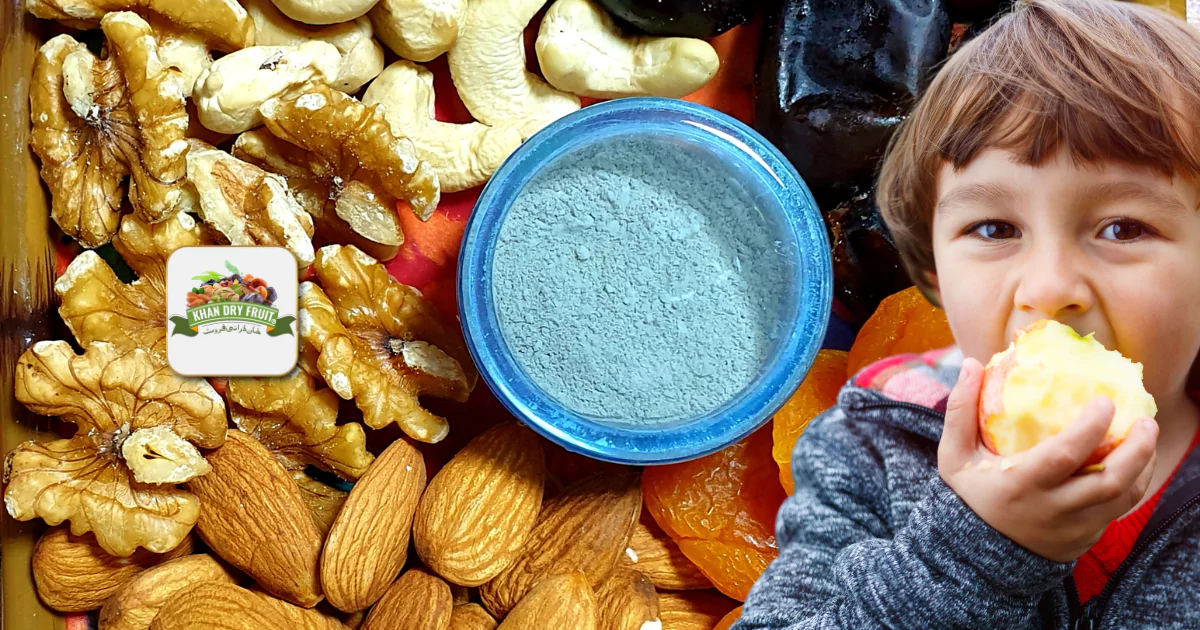dry fruits have health benefits children
Introduction to dry fruits and their health benefits for children
When it comes to nourishing our little ones, parents often seek the best options available. One delightful and nutrient-packed choice that stands out is dry fruits. These small powerhouses are not only tasty but also packed with health benefits that can support children’s growth and development. From boosting energy levels to enhancing immunity, incorporating dry fruits into your child’s diet can be a game changer. Let’s dive deeper and explore why these chewy snacks deserve a place in your family’s pantry!
Nutritional value of dry fruits
Dry fruits are nutrient powerhouses packed with essential vitamins and minerals. They provide a concentrated source of energy, making them ideal snacks for growing children.
These little gems are rich in dietary fibre, promoting healthy digestion. Fibre helps maintain stable blood sugar levels and keeps kids feeling full longer.
Vitamins like A, C, and E play crucial roles in supporting immune function and skin health. Plus, antioxidants found in dry fruits help combat oxidative stress.
Minerals such as potassium and magnesium contribute to bone development. These nutrients support muscle function too, which is critical for active youngsters.
Healthy fats from certain dry fruits also aid brain development. Omega-3 fatty acids promote better cognitive functions in children.
With their various nutritional benefits, incorporating dry fruits into a child’s diet can enhance overall well-being while satisfying sweet cravings naturally.
Common types of dry fruits and their specific health benefits
Dry fruits come in various forms, each packed with unique benefits for growing children.
Almonds are a powerhouse of nutrients. They provide healthy fats, protein, and vitamin E. This combination supports brain development and boosts immunity.
Cashews are another favourite. Rich in magnesium and zinc, they can help enhance bone health and improve energy levels.
Raisins offer natural sweetness along with iron content that aids in preventing anaemia. Their fibre helps digestion too.
Walnuts stand out due to their omega-3 fatty acids, which are essential for cognitive function.
Dates are not only delicious but also high in potassium and antioxidants, promoting heart health and providing an instant energy boost.
Each type of dry fruit plays a role in your child’s overall nutrition while offering variety to their diet.
Incorporating dry fruits into a child’s diet: tips and ideas
Getting creative with dry fruits can make them more appealing to kids. Try mixing chopped nuts and dried fruits into their breakfast cereals or oatmeal. This adds flavour and a delightful crunch.
You can also blend dry fruits into smoothies for a nutritious treat. Just throw in some bananas, berries, and your choice of dried fruit for a delicious drink.
Snack time offers another great opportunity. Create fun snack packs filled with an assortment of dry fruits like raisins, apricots, or dates—perfect for on-the-go munching!
Baking is yet another way to incorporate these healthy snacks. Add finely chopped dry fruits to muffins or energy bars for extra sweetness without added sugars.
Let kids help! Involving them in the process will spark their interest in trying new foods while learning about nutrition at the same time.
Potential risks and precautions when giving dry fruits to children
While dry fruits offer numerous health benefits, there are some risks to consider before introducing them to your child’s diet. Whole dried fruits can pose a choking hazard for younger children. It’s essential to ensure they are age-appropriate and cut into small pieces if needed.
Another point of caution is the high sugar content in many dried fruits. Excessive consumption may lead to dental issues or contribute to weight gain. Moderation is key when incorporating these snacks into daily routines.
Some children might also experience allergies, particularly with nuts like cashews or almonds found in certain mixes. Always monitor for any adverse reactions when trying new varieties.
It’s wise to choose unsweetened and unsulfured options whenever possible. This helps avoid added sugars and preservatives that could be harmful over time. By being mindful of these aspects, you can safely introduce dry fruits into your child’s nutrition plan.
Alternative options for children with nut allergies
For children with nut allergies, finding nutritious snacks can be challenging but rewarding. Fortunately, there are plenty of delicious alternatives to dry fruits that provide similar health benefits.
Seeds like pumpkin and sunflower seeds are fantastic options. They’re packed with vitamins, minerals, and healthy fats while being safe for those avoiding nuts.
Dried fruits such as apricots, apples, or raisins also make a great substitute. They offer natural sweetness without the risk of an allergic reaction.
Whole grains like oats can be combined into fun bars or cookies. These not only satisfy hunger but also deliver essential nutrients for growing bodies.
Consider legumes like chickpeas. Roasted chickpeas create a crunchy snack that’s both tasty and protein-rich—perfect for kids looking for something different!
Conclusion
The incorporation of dry fruits into a child’s diet can lead to numerous health benefits. These nutrient-dense snacks are packed with essential vitamins, minerals, and antioxidants that support growth and development. They provide a natural source of energy and can help improve digestion due to their fibre content.
While they offer many advantages, it’s important for parents to be mindful of the portion sizes and potential choking hazards associated with whole nuts or certain dried fruits. Always supervise young children while they’re eating these snacks.
For those concerned about nut allergies, there are plenty of alternatives, like seeds or dried fruit blends, that still deliver great taste without the risk.
By creatively including dry fruits in meals—whether in cereals, smoothies, or as toppings on yoghurt—parents can ensure their children enjoy both flavour and nutrition. Embracing variety is key; this keeps mealtime exciting while promoting healthy habits from an early age. The journey towards healthy eating can start with small steps today!







